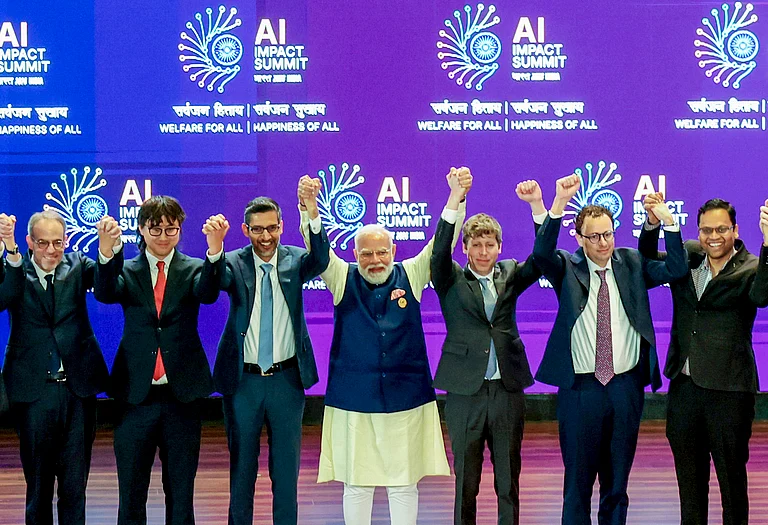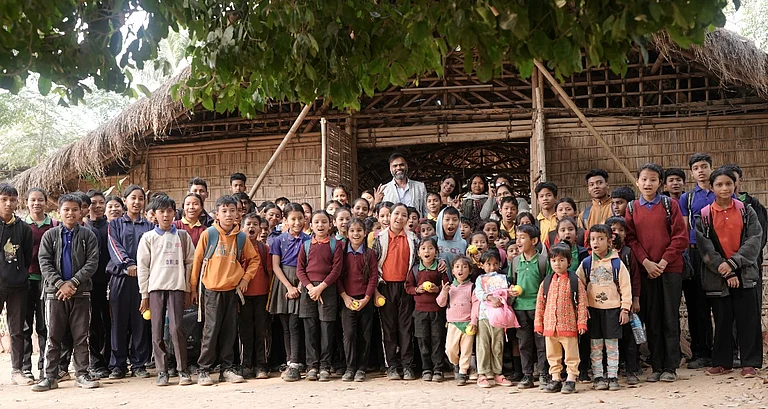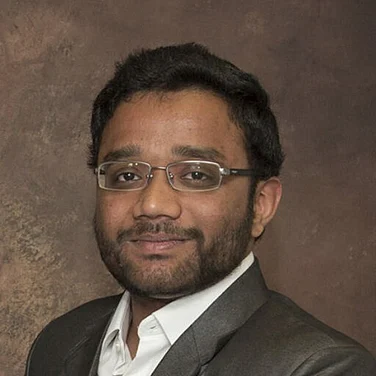In an era defined by global interconnection and cross-border collaboration, Excelia Business School stands out for its dedication to shaping future-ready leaders through academic excellence, innovation, and international engagement. Under the leadership of Tamym Abdessemed, Dean of Excelia Business School and Assistant CEO of the Excelia Group, the institution has expanded its global footprint while deepening its ties with rapidly growing regions such as Asia—especially India. In this conversation, Abdessemed shares his vision for Excelia’s international growth, its approach to developing responsible and entrepreneurial leaders, and how strategic partnerships are helping the school redefine business education for a changing world.
Q. Excelia Business School has been expanding its global footprint under your leadership. Could you share your vision for Excelia Business School’s international growth strategy and how regions like Asia - and particularly India - fit into this roadmap?
Excelia Business School is a triple-accredited school with the explicit objective to be an actor in the world. The international dimension of the school is a key element of our strategy and embedded in our mission. As a creator and disseminator of knowledge, we train managers supporting businesses and organizations in their transitions through cutting-edge education and an international mindset.
In this context, preparing our students for the world economy is central, with many of them likely to work with Asia, or, conversely, many of our Asian students going to collaborate with Europe in various ways.
India plays a pivotal role in the world economy, both as a major importer and exporter of goods and services, and as a key driver of technology-based innovation.
To reinforce Excelia Business School’s relations with the country, we have built various partnerships with Indian institutions. Our latest agreement was signed in September with IIM Udaipur and we are thrilled. We also welcome excellent Indian students, preparing talent for this geo-economic environment full of opportunities.
Q. As India’s economy and education sector evolve rapidly, how do you view India’s role as both a talent hub and a strategic partner for global business schools like Excelia Business School?
Cooperating with academic institutions in such a dynamic context is really central to developing talents capable of seizing opportunities to work in interaction with the Indian economy. This means exposing French students to these challenges, but also building bridges and capacities for collaborative intelligence by attracting good Indian students to our programmes. We know how to prepare them for successful careers, with a real commitment to responsibility combined with an entrepreneurial spirit.
Q. Excelia Business School is known for fostering research, innovation, and industry relevance. How do these pillars influence your approach to curriculum design and the development of future-ready leaders?
The research conducted at Excelia Business School directly serves cutting-edge education. Every year, our faculty produces more than 250 peer-reviewed contributions that are scientifically robust and at the same time connected to the world of practice.
Our teaching philosophy is to mix academic excellence and professional relevance in our programmes. The topics of our research cover the different disciplines of business management, guided by two core themes: sustainability and innovation.
Q. Collaboration has become key to academic excellence. How is Excelia Business School leveraging international partnerships and alliances to strengthen its academic offerings and global recognition?
As a triple-accredited school, we partner with 200 international institutions all over the world, 82% of them being accredited either by EFMD, AACSB, or AMBA. Among those, we have 16 double degrees for the Master in Management and 17 at the Bachelor’s level.
This network allows a very dynamic mobility policy worldwide, joint or double-degree programmes for our students, but also advanced academic and scientific cooperation such as visiting professor programmes, joint research projects, or joint institutional initiatives.
Through its very qualitative network, Excelia Business School, as one of the 1% of triple-accredited schools, acts in and for the planet.
Q. You’ve led some of France’s most reputed higher education institutions before joining Excelia. How have those experiences shaped your approach to strategic leadership and institutional innovation today?
A strong academic institution, to properly conduct its mission, must confer strong academic elevation, rich professional development, and qualitative international exposure.
A strong academic institution must combine tradition and modernity at the same time.
A strong institution must ensure, through a wide variety of experiences, individual progression and, at the same time, strong collegial emulation.
It is based on these principles that I conduct the strategic trajectory of Excelia Business School 2025–2030, which is named “Business Education for our futureS.” We have the responsibility to provide future graduates with the necessary adaptive skills to imagine and manage the futureS.
Q. Looking ahead, how do you see business education transforming in the next decade, and what role do you envision for Excelia Business School in preparing students - especially from emerging markets like India - to thrive in a dynamic global economy?
Managers of tomorrow will face numerous and simultaneous transformations and challenges.
This new century will require increased prospective skills, greater humanity, and continuous technological but also societal innovation.
At Excelia Business School, we aim at training managers engaged in their companies, fully part of society as a whole, and citizens of their planet. By designing curricula mixing knowledge, skills, and social and intercultural intelligence, our School is an incubator of talents coming from different places: Indian students have all their place and are seen as learners but also as contributors to our academic community.


























